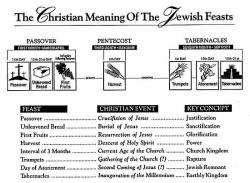Who is a real Christian?
Defining who is a "real" or "authentic" Christian can be a complex and subjective matter, as it often involves personal beliefs, interpretations of religious teachings, and individual relationships with God. However, there are certain characteristics and traits that many Christians consider indicative of authentic Christianity:
Faith in Jesus Christ: A real Christian has faith in Jesus Christ as their savior and Lord. They believe in his teachings, his death and resurrection, and seek to follow his example in their lives.
Personal Relationship with God: Authentic Christians have a personal relationship with God and seek to cultivate a deeper connection through prayer, worship, and spiritual practices.
Love and Compassion: True Christians embody love and compassion for others, following Jesus' command to love God and love their neighbors as themselves. They demonstrate kindness, empathy, forgiveness, and generosity in their interactions with others.
Biblical Foundation: Real Christians base their beliefs and actions on the teachings of the Bible, considering it the inspired word of God and a guide for living a faithful life.
Repentance and Forgiveness: Authentic Christianity involves acknowledging one's sins, seeking forgiveness, and striving for repentance and transformation. Real Christians recognize their imperfections and rely on God's grace for forgiveness and redemption.
Fruit of the Spirit: Genuine Christians exhibit the fruit of the Spirit, which includes love, joy, peace, patience, kindness, goodness, faithfulness, gentleness, and self-control (Galatians 5:22-23).
Active Faith: Authentic Christianity is not just a set of beliefs but a way of life. Real Christians actively live out their faith by serving others, sharing the gospel, and seeking justice and righteousness in the world.
Community and Fellowship: True Christians are part of a community of believers, supporting and encouraging one another in their faith journey. They participate in worship, fellowship, and discipleship within the context of a local church or Christian community.
It's important to recognize that the term "real" or "authentic" Christian can be subjective and may vary depending on individual beliefs and theological perspectives. Ultimately, the authenticity of one's faith is between the individual and God.
Determining the defining characteristics of a "genuine Christian" is a complex and sensitive issue, as different Christian denominations and individuals may have varying interpretations. However, I can offer some general insights based on core Christian teachings and principles:
1. Defining Characteristics:
- Faith in Jesus Christ: Accepting Jesus as the Son of God, believing in his teachings and sacrifice, and seeking to live according to his example.
- Love and Compassion: Embodying the core principle of love for God and neighbor, demonstrated through acts of kindness, service, and forgiveness.
- Spiritual Growth: Continuously seeking personal growth in faith through prayer, reflection, scripture study, and participation in a faith community.
- Integrity and Honesty: Aligning actions with beliefs, living truthfully and ethically, and demonstrating moral character.
- Humility and Forgiveness: Recognizing imperfections, seeking forgiveness, and offering forgiveness to others.
- Living the Teachings: Putting faith into action by embodying the values Jesus taught, like justice, peace, and reconciliation.
2. Distinguishing Authentic Christianity:
The line between authentic and nominal belief can be blurry. However, some potential distinctions include:
- Focus on relationship over rules: A genuine Christian strives for a personal relationship with God, not just following rules or rituals.
- Transformation of character: Authentic faith produces a change in heart and actions, impacting how one treats themselves and others.
- Motivation by love: True Christianity is driven by love for God and others, not personal gain or recognition.
- Humility and selflessness: Genuine faith fosters humility and willingness to serve others before oneself.
- Continual growth and learning: Authenticity involves a lifelong journey of learning, seeking improvement, and striving to live out values consistently.
3. Aligned Behaviors and Beliefs:
While specific behaviors may vary based on denominations and interpretations, some general principles commonly associated with true Christian faith include:
- Treating others with respect and compassion, even those with different beliefs.
- Seeking opportunities to serve others and contribute positively to the world.
- Living honestly and ethically, aligning actions with words and convictions.
- Standing up for what is right and advocating for the marginalized.
- Practicing forgiveness and offering grace to others and oneself.
- Acknowledging limitations and seeking guidance from trusted spiritual leaders.
- Engaging in regular prayer and reflection on one's faith and actions.
Remember:
- These are general observations, and interpretations may vary significantly within different Christian traditions.
- Judging the "genuineness" of someone's faith is ultimately a personal and spiritual matter.
- The focus should be on personal growth, following core Christian values, and striving to live a life that reflects love, compassion, and service.













